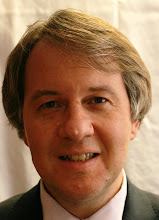The theme of the Pope’s visit is “heart speaks unto heart”, a reminder in the midst of all the controversy about his visit that it is about connection.
It feels right to support this visit because of what it promises all of us, Catholics and non-Catholics, those with a religion and those with no religion. I want this Pope to be different and challenge us – that is his strength, and our opportunity.
His meeting with religious leaders is billed as “a celebration of faith and of cooperation between the religions.” For too many political and religious leaders, all that matters is finding common ground. What matters equally is accepting some differences and working through others. The 20th century was a century of fighting for this or that “ism”, or finding some compromise that avoids tackling the difficult issues. The 21st century should be about understanding the other- especially in what makes the other different from us. It must also be about rediscovering the fixed points which make humanity unique. We can only do this working with and through the other.
We are blessed as a human race in having different perspectives and different traditions. Through difference comes possibility. On this basis, as a
When my father landed a job in Paris when I was five years old, my first education was not at just any French school, but a Jesuit one. I was a lapsed Catholic in my twenties and thirties. I explored a broad range of spiritual and religious literature, undoubtedly inspired by contact on my professional travels with people from different cultures and backgrounds. Over time, Jewish people and Jewish stories become a connecting thread, and in my early forties, Judaism became my fixed point around which I found and created meaning.
I kept an audit of what went into my decision to become a Jew. That journey made me reflect on how I make decisions. Depending on time pressures, I came to realise that for me at least, three ways of deciding usually reached the surface in different degrees: strength of intuition- gut instinct blended with experience and emotion; rational calculation -weighing up the pros and cons, benefits and costs; and finally, a sense of deep mystery- what Einstein alluded to when he said that at the cradle of true art and science lies a "mystery".
At the rabbinic board for my conversion, perhaps to the amusement or horror of some of the rabbis, I said that there was a connection between my Jesuit education and
With Judaism I found a faith that was inherently questing and questioning. It allowed me to seek out and celebrate a higher self, without losing sight of the whole self- the mineral, vegetable, animal, as well as the human, and something more than human. Dawkins and others are right to say that being human is enough- more than enough. But the beauty- and invariably the ugliness- of organised religion is that a collective and social space is preserved and nurtured where we can all explore a deeper mystery.
The Pope's visit reminds me that much as life is about variety and variation, there is something profoundly welcome about our civilisation being grounded in tradition and a renewed commitment to absolutes.





No comments:
Post a Comment